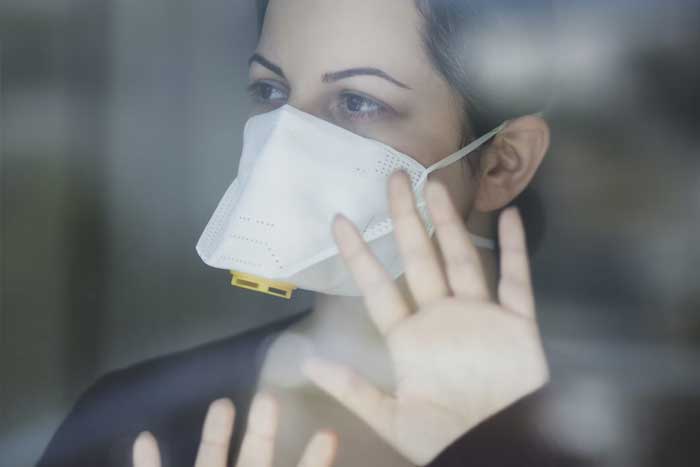Airborne-spread diseases are illnesses that can be passed from one person to another by breathing in the same air. These diseases include the common cold, the flu, Covid, Clostridium Difficile, and many more. Although many airborne-spread diseases are not life-threatening, they can still make people very sick. It is important for everyone to do their part in order to ensure that as few people as possible get sick. The best way to achieve this is to gain a better understanding of airborne-spread diseases and how to prevent them – and there are some key health tips that can help us do just that.

@onderortel
1. Clean And Disinfect Frequently Touched Surfaces
One of the best ways to prevent the spread of airborne diseases is to clean and disinfect surfaces that are frequently touched. In the case of dissemination of c-diff spores, it’s well known that environmental contamination is a key factor in outbreaks. And while there are new studies suggesting that it is an airborne virus, it is still important to clean and disinfect surfaces – much like it is with all other airborne-spread illnesses. This includes door handles, countertops, light switches, phones, keyboards, and anything else that gets a lot of use. A simple solution of soap and water can be effective in most cases, but you may need to use a disinfectant if the surface is contaminated with a virus or bacteria. A good rule of thumb is to wipe down these surfaces with alcohol or bleach at least once a day.
2. Wash Your Hands Regularly And Thoroughly
Washing your hands is one of the best ways to prevent the spread of any illness, but it is especially important when it comes to airborne-spread diseases. Be sure to wash your hands thoroughly and often, using soap and clean water for at least 20 seconds. While liquid soap is a better option than no soap at all, it’s known that it tends to be more prone to bacterial development than bar soap – so make sure to clean your hands with a new bar of soap whenever possible. You should also avoid sharing towels, as they can also spread germs. If you are unable to wash your hands with soap, you can use an alcohol-based hand sanitizer as a backup.
3. Avoid Close Contact With People Who Are Sick
If you know someone who is sick, it is important to avoid close contact with them. This includes kissing, hugging, and sharing drinks or food. It’s also a good idea to keep a distance of about 6 feet from the person if possible. If you are unable to avoid close contact, be sure to wear a face mask. It’s important to note that while a face mask will protect others from you, it will not protect you from them fully. That’s why you should also ask them to wear a face mask if they are able. When wearing a face mask, it’s important to keep in mind that they aren’t really reusable – so make sure to dispose of them properly after each use. As a general rule, you should put a new mask on after about 4 hours of use – or sooner if it gets wet or dirty.
4. Stay Home When You’re Sick
If you are feeling sick, it is important to stay home. This will help prevent the spread of illness to others. It’s also important to remember that you should stay home until you are free of any fever for at least 24 hours. If you have to go out, always wear a mask, and avoid close contact with others. It’s important to cover your mouth and nose when you cough or sneeze, as this can help prevent the spread of germs. The best way to do this is to use a tissue, and then dispose of it immediately. This is a rule you should follow even if you’re already wearing a mask. While this will differ depending on what you’re sick from, as long as you’re coughing or sneezing – you’re contagious.
5. Get Vaccinated
One of the best ways to prevent the spread of airborne diseases is to get vaccinated. This is especially important for those who are at a higher risk, such as the elderly or those with weakened immune systems. However, even if you are not at high risk, it’s still a good idea to get vaccinated as it can help protect you from the disease. Vaccines are available for many of the most common airborne-spread diseases, so be sure to ask your doctor about what options are available to you. While vaccines cannot protect you 100%, they can significantly reduce the likelihood of getting sick. And even if you do get sick, you will experience less serious symptoms because of the vaccine. The higher the number of vaccinated people, the lesser the chance that the disease will spread.
Following these important health tips can help us all to better understand airborne-spread diseases and how to prevent their spread. By washing our hands regularly and thoroughly, avoiding close contact with those who are sick, staying home when we are sick, and getting vaccinated, we can help to reduce the spread of these diseases and keep ourselves and others healthy.
